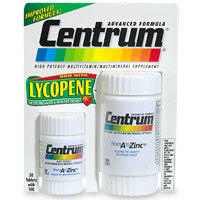Vitamins: Good or Bad?

Today I came across a blog post from a Dr. Gabe Mirkin, MD, on the Reuter’s Health and Fitness wire regarding the use of vitamins supplements to improve a person’s health. In short, Dr. Mirkin warned against using specific vitamins to treat various ailments, citing their ability to throw the body’s carefully tuned chemical balance out of whack. For example, Mirkin pointed out that “people who take niacin to lower cholesterol show a marked elevation of homocysteine, a major risk factor for heart attacks.” This is because the body usually receives its niacin shot from whole grains which also contain B12, folic acid, and pyridoxine, three elements that keep homocysteine levels in check.
Reading this made me wonder what else happens to us when we overdose on a specific vitamin or mineral? I know that we create some expensive urine from the water-soluble vitamins like Vitamin C, but what about the fat-soluble ones like Vitamin E or a mineral like zinc? Can we actually make ourselves sick by trying to make ourselves healthier?
I suspect we do this all the time. We can’t help it, we’re Americans. We want a magic pill to save us from ourselves and let us keep on doing whatever pleases us. Change our behavior and habits? Hell no, that’s un-American. Just give us a crash diet/prescription/surgery/shiny new toy to make things right, okay? [TANGENT WARNING] Thinking about Mirkin’s point and our push for the instant solution, I was reminded of a sarcastic conversation I had with a research doctor from UCLA, who explained how he sees medicine’s use of drugs. “We give you a pill for your ailment,” he said. “Then we give you another pill for the negative side effects of that pill. Then we give you another pill to deal with the side effects of that second pill, and so on and so on. And if you’re sick of all the pills and injections and IV’s, well, we give you a sedative to keep you happy. Not happy enough? No problem, we’ll just give you a more powerful sedative. Just enjoy the ride.” Good thing this doctor remained in research; I don’t think many patients would’ve found his droll bedside manner very charming.
OK, back to vitamins: When I was working with Carmichael Training Systems, the question of supplements came up constantly among a large portion of their athletes. Most of them assumed that they needed a multivitamin with 1,000% RDAs of a laundry list of vitamins and minerals. They assumed this because they were hard-charging athletes who were constantly stressing out their bodies. But the staff sports nutritionist repeatedly pointed out that a well-rounded diet of whole foods was the best source of these nutrients. And she went on to say that an athlete’s need to eat more food took care of their need for more nutrients. Fair enough, the athletes said, but they would then point out that they had certain food allergies or they just didn’t want to take the time to put together a balanced meal (I always found this odd since they seemed to have no trouble finding time and energy to train 8-12 hours a week.). So there was a compromise: go ahead and stick to a multivitamin, but skip single vitamin or mineral supplements. And don’t go over 100% RDA with anything; between the multivitamin and whatever food you’re eating you’ll get more than enough nutrients.
While it’s not perfect according to Dr. Mirkin’s standards, I think a multivitamin is a good insurance policy especially in light of the dietary minefield awaiting us outside of the produce section of the supermarket and in nearly every restaurant meal in the country. Personally, I found that I get sick whenever I try to take a multivitamin on a regular basis. I don’t know why, but within a week of taking the supplements I feel like s#*t. Instead, I try my best to eat a balanced selection of whole foods each day (see “Eating Greens”). Your multivitamin results may vary.
In the end, the answer to the question, “Are vitamins good or bad?” depends. A multivitamin is okay, but a gazillion percent of your RDA of B12 is not going to do you any favors. The same things can be said about anything you swallow. Too much sugar is bad. Too much protein is bad. Too much fat is bad. Everything in moderation, cliché, cliché, cliché. Sorry America, you’re just going to have to be patient and get healthy one small dose at a time.
Grant Davis has spent the last decade writing and editing articles about health, fitness, and nutrition. He lives in Colorado Springs, Colorado.